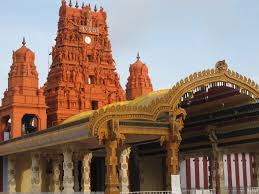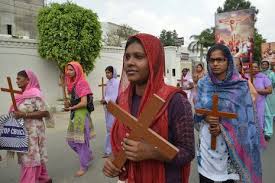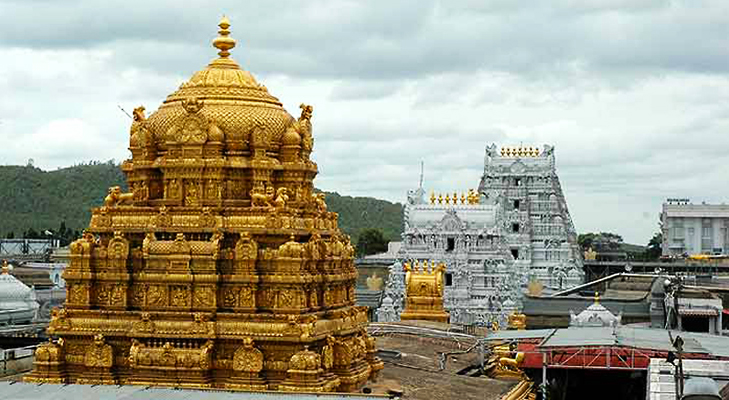Over the years, one has heard a vast cross-section of Hindus express concern over the seemingly unfettered authority exercised by governments over Hindu religious institutions, in particular temples and their property.
These legitimate concerns broadly relate to governments’ appointment of puppets to Temple Boards, control over the property and income of Temples, diversion of their funds to further political goals through subsidies for other religious groups, abysmal maintenance of Temples and interference in their day-to-day functioning and traditions.
Unfortunately, the expression of concern at best leads to hand wringing, as opposed to informed, intelligent, systematic and sustained advocacy by those interested in protecting the rights and interests of Hindu religious institutions. It must be borne that no government, notwithstanding its stated ideological moorings, can be expected to take up these causes in the absence of a political incentive or dogged pressure from groups advocating such causes.
 This is something the so called Indic Right must learn and learn fast because it couldn’t have asked for a more conducive combination of circumstances to pursue these causes and see them through to their logical ends or at least lay a formidable foundation for the future.
This is something the so called Indic Right must learn and learn fast because it couldn’t have asked for a more conducive combination of circumstances to pursue these causes and see them through to their logical ends or at least lay a formidable foundation for the future.
On this front, it needs to be said that barring a handful of examples of yeoman individual effort, the Indic Right has not employed legal and democratic means as widely and as effectively as the Left or non-Hindu groups.
Importantly, this is a shortcoming that Hindus need to work on to shatter the stereotype that it has little faith in Constitutional means and the rule of law. As I have consistently held elsewhere in my exhortations, free speech, free expression and methods rooted in democratic values are the best friends of the Right.
But for that, diligent spade work must be undertaken to collate facts and understand the legal/policy framework that applies to an issue. This approach, like it or not, calls for a fair amount of hard work. If the Indic Right is serious about achieving long-term goals or even short term ones, it must repose faith in concrete and focused action since idle lamentation and lazy analysis can never be substitutes for depth and rigour.
Since the first requirement of advocacy is that it must be “informed”, beginning with this essay, this series will endeavour to set out the scope of the State’s powers under the Constitution to interfere with Hindu rights and religious institutions.
Although the discussion involves making sense of certain provisions of the Constitution, in the interest of lucidity one shall attempt to keep the legalese and jargon to the minimum, hopefully without bulldozing nuances and subtleties. After all, in law, the devil lies in the detail and interpretation.
Hindu Rights and the Constituition
So which part of the Constitution is one supposed to look into to understand the rights and freedoms available to Hindus and the limits on the State’s powers to interfere with the functioning of Hindu religious institutions?
In the Seventh Schedule to the Constitution, Entry 28 of the Concurrent List deals with “charities and charitable institutions, charitable and religious endowments and religious institutions”.
Since these subjects form part of the Concurrent List, the Parliament as well as State Legislatures can pass laws relating to them. As for religious and cultural freedoms, these are specifically recognized in Articles 25-30 in Part III of the Constitution which deals with “Fundamental Rights”. In this piece, I shall limit the discussion to Article 25.
Article 25 (1) recognizes every person’s right to freedom of conscience and to freely profess, practise and propagate one’s religion. However, these rights are not absolute because their enjoyment is subject to public order, morality, health and other provisions of Part III.
Those interested in addressing forcible or fraudulent conversions might be aware that in Reverend Stainislaus v. State of Madhya Pradesh, the Supreme Court held that while Article 25(1) guaranteed every person’s right to practise and preach the tenets of her or his faith, it did not envisage a fundamental right to convert another person to one’s own religion.
Simply put, while the right to religious freedom is a fundamental right, the right to convert is not. The basis of the Supreme Court’s view was that the right to convert another person impinges on the latter’s freedom of conscience and could lead to breach of public order.
Needless to say, evangelical groups have a clear interest in getting the Supreme Court to revisit and reverse this decision. In fact, in 2011, the World Evangelical Alliance had “recommended” the repeal of anti-conversion laws to the UPA Government under the pretext of furthering religious freedoms.
 The sad part is that Hindu religious institutions (barring affluent Ashrams) cannot stand up to these groups since their own institutions are under the thumb of governments leaving them with little or no material resources to respond to such challenges. This is but one of several good reasons to rid Temples of unwarranted interference by the State in its affairs.
The sad part is that Hindu religious institutions (barring affluent Ashrams) cannot stand up to these groups since their own institutions are under the thumb of governments leaving them with little or no material resources to respond to such challenges. This is but one of several good reasons to rid Temples of unwarranted interference by the State in its affairs.
This takes us to the power of the State under Article 25(2). According to the provision, nothing contained in it shall affect any existing law or prevent the creation of a new law, if such law:
(a) Regulates or restricts any economic, financial, political or other secular activity which may be associated with religious practice or
(b) Advances social welfare and reform or provides for the throwing open of Hindu religious institutions of a public character to all classes and sections of Hindus.
Understanding the import of Article 25(2) is critical because it informs us of the State’s power to intrude into religious affairs. In plain and simple terms, the provision translates to the following:
- There are no fetters in the Article which prevent the State from enforcing an existing law or creating a new one if the law relates to subjects referred to in (a) or (b). That being said, fetters or limitations continue to apply to the State’s powers by virtue of other provisions of the Constitution.
- As far as Art. 25(2)(a) is concerned, its application is not limited to Hindus. In other words, the provision applies equally to all religious groups. However, the scope of the State’s interference under the provision is limited to “secular activities”, meaning activities though undertaken in relation to a religious practice are not religious activities in themselves. This explains the use of the words “economic, financial or other secular activity”.
- In contrast to Article 25(2)(a), 25(2)(b) uses broader terms like “social welfare”, “reform” and importantly it speaks of throwing open of Hindu religious institutions of a “public character” to “all classes and sections of Hindus”. While the first portion of 25(2)(b) allows the State to pass a law to advance “social welfare and reform” which applies to all communities, the second portion of “throwing open of Hindu religious institutions of public character” applies only to Hindus of all classes and sections.
A few questions must be asked at this juncture:
- Under Article 25(2)(a), to what extent can the State interfere in the functioning of Hindu religious institutions in so far as its “ secular” (non-religious) activities are concerned?
- Under Article 25(2)(b), can the State alter or abolish a Hindu religious practice which is protected under Article 26 in the name of “social welfare” or “ reform”? If yes, to what extent is the interference permissible under the law?
- In the name of social welfare or reform under Article 25(2)(b), can the State pass a law requiring Hindu religious institutions to open their doors even to non-Hindus?
While I shall attempt to answer these questions in the next part, the next time the media manufactures a controversy on the ground that a non-Hindu was not allowed entry into a Hindu religious institution, do bring Article 25(2)(b) to its attention since the provision only speaks of throwing open Hindu religious institutions of a “public character” to “all classes and sections of Hindus”.
Let’s see what the media has to offer as an intelligent counter, if it is capable of one.
Continued in the next part
J. Sai Deepak is a Delhi-based litigator who practises primarily before the Delhi High Court. Sai writes on economic laws and policy on his blog “The Demanding Mistress” http://thedemandingmistress.blogspot.in/. He is @jsaideepak on Twitter.

